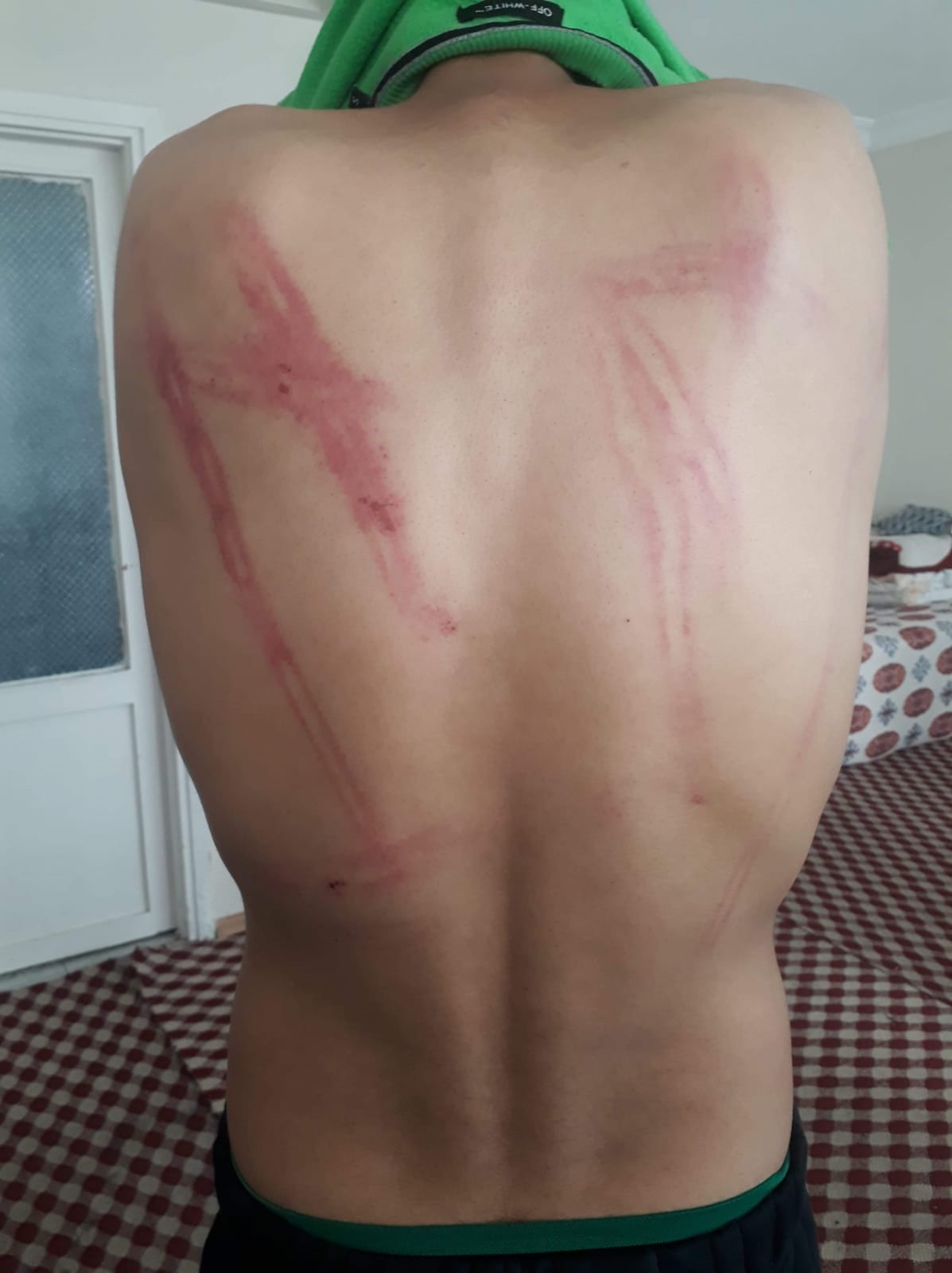On Wednesday 15th April 2020, the respondent – a 26 year old Afghani male – was staying with other people in Diavata camp, close to Thessaloniki (GRK). He was camping with others in an informal section of the site, made of tents and over spill shelters built because the facility was already full.
During the morning, Greek police dressed in black and several officers in civil clothing entered the camp. They arrived with several vehicles: small white vans with barred windows, and a larger blue coach with “Police” written on the outside of it. The officers rounded up approximately 50 people from the camp.
“They catch us in the camp”
The respondent says the people taken included many Afghans, as well as North African people from Morocco and Algeria. The police told the groups that they were to be taken to the station temporarily to be issued “khartias” [informal name for a short term legalisation document. Some had papers with an expired date, though according the measures brought in by the Greek government, these remained valid until the asylum office opened again after the COVID-19 restrictions.

The respondent had a scheduled interview at the asylum office for mid March, but this had been cancelled because of the health restrictions. He still had a hand written note with the date and time of this appointment.

The officers loaded them into the vans and bus and drove them a short distance. The respondent recalls the vehicles taking them onto the main road running into Thessaloniki (Motorway 2) because he recognised the 81 bus line which he regularly took. After a short drive the 50 people were disembarked at a large police station where many officers and cars were stationed.
The group were taken inside the station, but rather than being processed and issued “khartia”, the officers ordered them to lie down and searched them. The police took phones, money and other valuable possessions. The officers also reportedly used batons to hit the majority of the people, and also used handheld taser devices to administer electric shocks to some peoples legs.The respondent recalls how one of the officers in civil clothes ordered them to lie on the floor:
“Sleep here, don’t move”
Following this, many of the people were assaulted with batons by the officers present. The police then removed the group into an outdoor/parking area where they were detained for approximately two hours. During this time it rained and the group got very wet and cold.
The Greek officers then loaded the 50 people into a large bus (blue with “police” written on the side) and drove them for several hours. The group were disembarked in the evening and held in a facility staffed by Greek military personnel. The officers inside were described as wearing
“Military uniform, masks, guns, electric [taser]”
The people were held there overnight in shared cells. The respondent describes how violence was used by the military officers inside the detention space. The next day, Thursday 16th April 2020, they were taken in a van and moved to another site which was staffed by similarly dressed authorities. After this they were put in several vans and driven to the Meric river. There, the Greek military officers removed them from the vans and forced them to strip near the bank of the river. The authorities beat the group again with batons.,leaving visible bruising.

The people were divided and ferried across in smaller groups in a boat. Once th respondent had been pushed back onto the Turkish side he reports being found by Turkish police who held them. The officers told them they could not stay in Turkey and had to reenter Greece. The Turkish officials made them wait and said they would bring the men a boat for them to cross back. The respondent and others then ran away from the river to avoid this, and eventually found their way to Istanbul.
